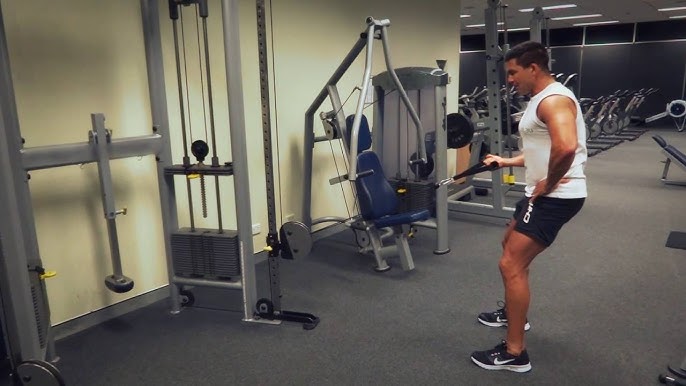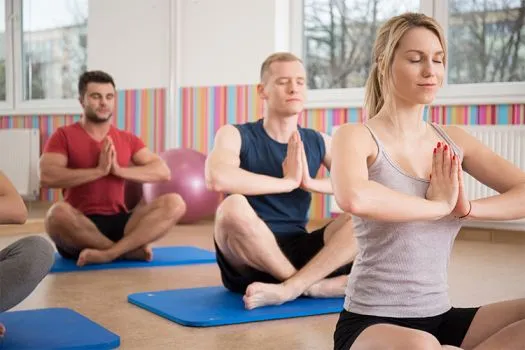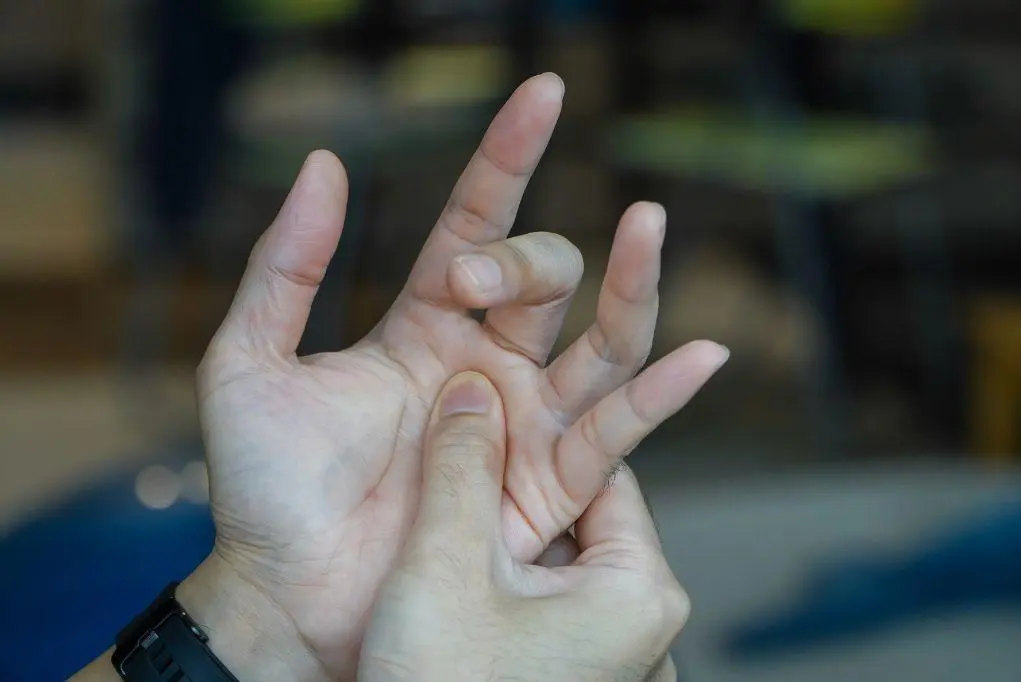WOODY BELFORT Sets no cap for his objectives. Brought into the world with a type of cerebral paralysis, Belfort, 27, has made a vocation of vanquishing limits and surpassing assumptions in his wheelchair. He's a Worldwide Wellness and Weight training Organization (IFBB) Genius jock, whose exceptional style of athletic, gymnastic acting utilizing his wheelchair like a stage has cut out his own space inside the game.
Despite the fact that Belfort is distant from everyone else in front of an audience while he's presenting at a lifting weights show, his emphasis is on focusing on something beyond himself. "I'm attempting to get the focus on me so I can sparkle it on individuals that nobody knows yet," he says. "That is my whole objective."
Belfort addressed Men's Wellbeing about directing through wellness spaces where he sticks out, both as a competitor with an incapacity and as an African-Canadian. His encounters have enlivened him to take on the greatest difficulties inside wheelchair working out and investigate how to advocate for comprehensiveness so a future partner of competitors get to gleam on the greatest phases of game, regardless of what they resemble. Very much as he's doing at present.
Men’s Health: How did you get your start in fitness?
WOODY BELFORT: I was dependably a functioning youngster. I generally wanted to move and connect with individuals and I generally wanted to play sports. Despite the fact that I was generally the only one in a wheelchair, I generally attempted to partake in my own particular manner.
In grade school, I needed to move to Quebec, where I got the opportunity to be in a school with other handicapped competitors, other crippled children, and I got to play different debilitated sports. That truly propelled me to see what's more — like attempt wheelchair b-ball, attempt olympic style events. I did nearly all that I could get my hands on and simply give it a shot since I love to move. Despite me being in a wheelchair, I generally love to zoom around.
I found wheelchair working out when I went to a wellness exhibition for certain companions in Toronto in 2017. We had a stall for workout. Right next to us, there was a phase where folks and young ladies would happen in little shorts and simply flex. I was like, what is that? At a certain point, I saw a person in a wheelchair. I'm like, "Stand by, folks in wheelchairs to do this?" It was Scratch Scott, the diplomat for the wheelchair working out division. We began talking, I began to see you the way things were, and he acquainted me with wheelchair working out.
Have you observed that you're the main individual who seems as though you in a large portion of the rooms that you've been in throughout your time in the wellness world?
WB: Being an African-American or for this situation, African-Canadian, in a wheelchair, there wasn't. I really don't have the foggiest idea about a ton of them. Whenever I've first seen somebody like me was the point at which I partook in wheelchair b-ball.
In my everyday life, I was either going to be the Person of color in the room or the person in the wheelchair. Also, now and again individuals would comment I was both. I was consistently in one of two camps, and it never truly annoyed me since they were all essential for my own character. Yet, the more I grew up, the more I understood I needed more individuals that seemed as though me.
Did that alter the way that you navigate those spaces?
WB: I never truly griped about variety since I was variety for quite a while. I was constantly used to being the standard. Yet, when I got to meet individuals from various different foundations with different handicaps, it resembled a much needed refresher for not being the norm, yet being essential for the standard, in that specific setting.
One of the most outstanding models is in wheelchair lifting weights. One of the bosses of wheelchair working out is an African-American who's debilitated. He's way greater than me since he's won worldwide rivalries, however whenever I had the opportunity to meet him and discuss his day to day battles, I would portray one of my everyday battles that I believed was pretty specialty. I thought it was really exact, and he knew precisely exact thing I implied. It just felt perfect to have the option to converse with another person in a mirror that could see completely what I implied — and at that point, I understood that I wanted the affirmation of his reality. That I'm in good company.
I believe the light should beam on different competitors since there's others like we're discussing — I maintain that children should see various kinds of competitors and not simply me being the representative for being a wheelchair competitor. I feel like the more I'm in these discussions, the more I understand that we want variety in the handicapped and in the African-American or in the minorities networks that nobody knows.
What do you see as the greatest test as a minority in wellness?

WB: There are a ton of perspectives and there's many responses I have in my mind, however the one I'm contemplating right currently is the way that I'm as of now in a wheelchair. I need to stress over and attempt to take care of quick wheelchair issues, and that watches out for not pass on adequate space to sparkle, or not sparkle, however to work or embrace the African-Canadian side of me.
You fail to remember that you're more than one [identity]. We're like onions — we have more than one layer. Be that as it may, we will quite often fail to remember it and remain surface level since we attempt to accomplish extraordinary stuff in one perspective, when we have more than one viewpoint to us.
So tracking down that equilibrium and finding the way that I'm not only a person in a wheelchair, I'm more than that, was quite possibly of the hardest viewpoint, particularly in wheelchair weight training. Indeed, it's about build, yet additionally about your character and how you need to set a heritage for yourself.
Are there normal confusions about cerebral paralysis you need to explore?
WB: I accept when the vast majority see somebody in a wheelchair, they simply expect that he can't walk. Besides, the way that I'm Dark, the vast majority expect — well that is more in the States — many individuals would agree, "Was it a gunfire?"
Buddy, I can walk. At the point when I get up, it very well may be via web-based entertainment or face to face, I frequently hear certain individuals say, "Gracious, he's faking it." Whether it's a joke, whether it's anything but a joke, the way that your remark is me faking who I'm, it sucks. It truly does.
How hard is it to track down open spots to prepare? Do you have thoughts for answers for make exploring those spaces less troublesome?
The openness in my regular daily existence is a decent seven out of 10 [on the trouble scale] and that is on the grounds that I see myself as exceptionally fit. However, in an exercise center setting where wheelchairs aren't exactly thought of, the trouble goes up to an eight or nine. I generally anticipate that something should not ultimately depend on norm for somebody who's in a wheelchair — like the entryways are excessively little, or it's excessively restricted, or the machines are in gatherings. Furthermore, at whatever point you attempt to ask staff, they don't have any idea what the response is on the grounds that you're logical the first or second individual in their exercise center [in a wheelchair] when they see it. There's continuously something. I'm adaptable with my handicap however not every person has that honor.
I need to bring [these openness issues] into light since, supposing that more individuals discuss it, more exercise centers will be available all around, and more wheelchair clients can go to rec centers. I've conversed with a ton of rec center proprietors, they're like, "Gracious, I never pondered that." Your objective isn't simply that anybody can get into your structure. Your objective is everybody can have the advantages of what your structure gives.
Do you have an extreme wellness objective? On the Steve Harvey show, you said that you need to run the entire American Ninja Fighter glove.
WB: Because of Coronavirus I was unable to make it happen. In any case, I've done specific renditions of it here at home. I've been attempting to deal with holding equal bars; I'm doing a handstand on parallettes. I handstand, then, at that point, I break it, and equilibrium myself on the tips of the parallette.




